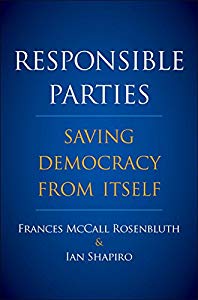Political partisanship is vicious. That’s because political parties are too weak.
Trump would never have been the nominee if the Republican Party were stronger.
There’s a paradox at the heart of American politics: Political polarization has rarely been more extreme. More than half of registered Democrats and Republicans view members of the other party “very unfavorably,” and 49 percent of Republicans (and 33 percent of Democrats) would prefer their children not marry a member of the other party (up from about 5 percent in the 1960s). On a practical level, the 2018 midterms produced a deeply divided Congress unlikely to generate much legislation.
But none of this is because parties are “unusually strong,” as Bloomberg’s Jonathan Bernstein and other commentators put it. On the contrary, our political system is dysfunctional and polarization is intense because parties are too weak.
A “strong” party is a party that presents voters with a coherent policy agenda. To be able to construct and deliver on a party platform, party leaders select candidates; but backbenchers in the legislature in turn choose and replace party leaders depending on how successfully the leaders deliver electoral victory.
Continue to the Op-Ed written by Frances McCall Rosenbluth, Damon Wells Professor of Political Science, and Ian Shapiro, Henry R. Luce Director of The MacMillan Center and Sterling Professor of Political Science, for The Washington Post (November 28, 2018).
